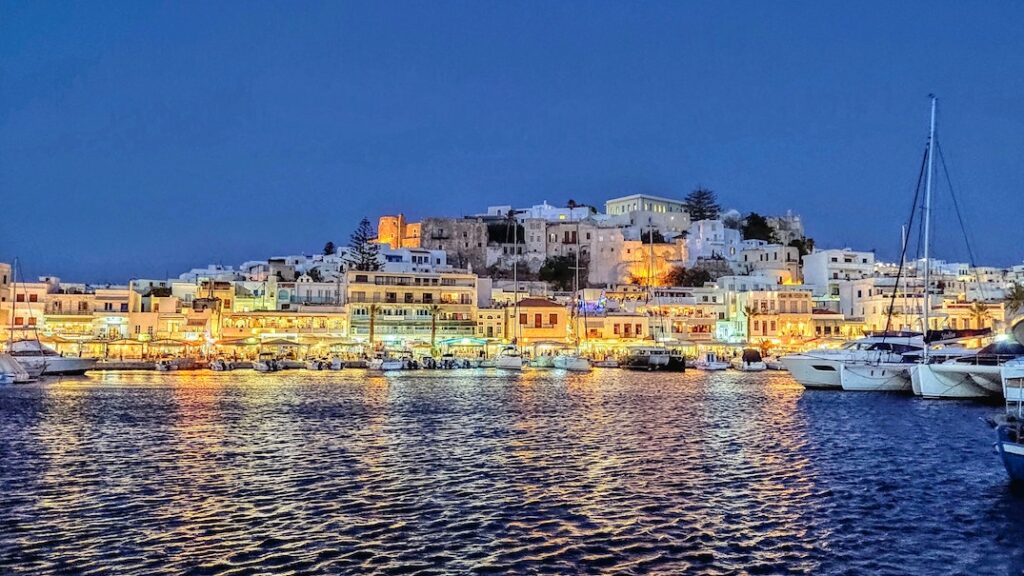Greek Holidays
Top 7 Greek Holidays
Presented by Juniper Tours
Holidays are an important part of Greek culture and history. They provide an opportunity for people to come together and celebrate their heritage, religion, and national identity. Many holidays are tied to religious traditions, such as Easter and Christmas, which are important to the Greek Orthodox Church. Others, such as Independence Day and Ochi Day, celebrate significant historical events. Holidays are also a time for families and friends to gather and celebrate, and for many people, they are an important part of their cultural identity. Keep reading through this blog post to see Juniper’s top 7 most important Greek Holidays!
- New Year’s Day (January 1): This is the start of the new year and is celebrated with fireworks, parties, and other festivities.
- Epiphany (January 6): This holiday commemorates the baptism of Jesus in the Jordan River. It is marked by religious ceremonies, including the blessing of the waters, and the throwing of a cross into the sea.
- Independence Day (March 25): This is a national holiday that celebrates the start of the Greek War of Independence in 1821. It is marked by military parades, speeches, and other patriotic events.
- Easter (variable date): This is the most important holiday in the Greek Orthodox Church. It commemorates the resurrection of Jesus and is marked by religious services, family gatherings, and the traditional dyeing of eggs.
- May Day (May 1): This is a public holiday that celebrates the start of spring. It is often marked by demonstrations, speeches, and other events.
Assumption Day (August 15): This holiday celebrates the Virgin Mary’s assumption into heaven and is marked by religious services and other celebrations. - Ochi Day (October 28): This holiday commemorates the day in 1940 when Greek Prime Minister Ioannis Metaxas rejected an ultimatum from Italy, effectively starting World War II. It is marked by military parades and other patriotic events.
- Christmas Day (December 25): This is a Christian holiday that celebrates the birth of Jesus. It is marked by religious services, gift-giving, and other celebrations.

New Year’s Day, or Protochronia, is a public holiday in Greece that is celebrated on January 1. It marks the start of the new year and is typically a time for people to come together with their families and friends to celebrate. In many parts of Greece, people gather to watch fireworks, eat traditional foods, and make toasts to the new year. In Athens, there is a large public celebration in Syntagma Square, which includes a military parade and other festivities. New Year’s Day is an important holiday in Greece, and many people take the day off work to celebrate.
In Greece, Epiphany is a public holiday that is celebrated on January 6. It marks the visit of the three Wise Men to the infant Jesus, and is also known as “Theophany” or “Baptism of the Lord.” On this day, many Greek Orthodox Christians attend church services, and some may also participate in special outdoor ceremonies in which a cross is thrown into a body of water and then retrieved by divers. This ritual is meant to symbolize the baptism of Jesus in the River Jordan.
Greece celebrates its Independence Day on March 25. This day marks the start of the Greek War of Independence in 1821, when Greek rebels rose up against Ottoman rule. On Independence Day, many Greeks attend parades and other patriotic events, and the day is marked by speeches, singing, and other patriotic displays. The Greek flag is often prominently displayed on this day, and many people also wear traditional Greek clothing.
Easter is an important religious holiday in Greece, as it is for many other Christian countries. In Greece, Easter is celebrated on the first Sunday after the first full moon following the spring equinox. This means that the date of Greek Easter can vary from year to year. Many Greeks attend church services on Holy Saturday and Easter Sunday, where they hear the Easter story and participate in special liturgies. On Holy Saturday, it is traditional to dye hard-boiled eggs red to symbolize the blood of Christ. These dyed eggs are then used in games and exchanges on Easter Sunday.
In Greece, May Day is celebrated on May 1. This holiday is also known as International Workers’ Day, and it is a time to recognize the contributions of workers and celebrate the labor movement. May Day is a public holiday in Greece, so many businesses and public services are closed on this day. Some people may attend parades or other events to celebrate workers’ rights, while others may use the day to spend time with family and friends.
Ohi Day is another name for Ochi Day, which is a national holiday in Greece celebrated on October 28. This day commemorates the rejection of the ultimatum made by Italian dictator Benito Mussolini to Greek Prime Minister Ioannis Metaxas on October 28, 1940. Metaxas famously replied to Mussolini’s ultimatum with the single word “Ochi” (No), which is why this day is also known as “No Day.” On Ohi Day, many Greeks participate in patriotic events and celebrations, and the day is marked by speeches, parades, and other displays of national pride.
Christmas is an important religious and cultural holiday in Greece, as it is in many other parts of the world. In Greece, Christmas is celebrated on December 25, and many people attend church services on this day to celebrate the birth of Jesus. In addition to religious observances, Christmas in Greece is also a time for family gatherings and special traditions. For example, it is traditional to exchange gifts on Christmas Day, and many families also prepare a special Christmas meal that may include dishes like roast lamb or pork, seafood, and sweet desserts.
Thanks for checking out Juniper Tours’ Travel blog! We hope you enjoyed your read and if you’re looking for more content please check out our other blog posts! If you’re looking for help planning your next travel adventure then book a FREE travel consultation with one of our Travel Specialists today!




